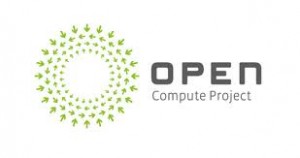Rackspace and the Open Compute Project
Ajit Deshpande - January 22, 2013 - 0 Comments
 During last week’s Open Compute Summit, Rackspace announced that it is working on designing its own servers using open-source Facebook specs. Rackspace has been involved with Open Compute since its inception in April’11, and has been itself a founder of the open-source cloud computing operating system Open Stack. This recent announcement by Rackspace thus underlines the momentum that the server commoditization trend has gained over the past two years. Open Compute now boasts more than 50 members including major server and storage players such as Intel, AMD, Dell, HP, VMware, EMC and Fusion-IO. Missing, on the other hand, are three big names – Google, Amazon and Microsoft – all of whom build their own proprietary servers already.
During last week’s Open Compute Summit, Rackspace announced that it is working on designing its own servers using open-source Facebook specs. Rackspace has been involved with Open Compute since its inception in April’11, and has been itself a founder of the open-source cloud computing operating system Open Stack. This recent announcement by Rackspace thus underlines the momentum that the server commoditization trend has gained over the past two years. Open Compute now boasts more than 50 members including major server and storage players such as Intel, AMD, Dell, HP, VMware, EMC and Fusion-IO. Missing, on the other hand, are three big names – Google, Amazon and Microsoft – all of whom build their own proprietary servers already.
Rackspace’s announcement aside, Open Compute represents an interesting contrast between Facebook and Google. Facebook in this case seems to be sharing details of proprietary technology that otherwise would have provided it with a technological and financial edge over much of the market. Google on the other hand, seems to be far ahead of everyone including Facebook, but has never shared its knowhow until it has secured a significant technology head-start, for example with its Google File System or with its Open Flow implementation. Is Facebook’s greater dependence on the exponential data being generated and shared by its subscribers incentivizing the company to mobilize thought leadership in the entire industry to drive down cost, something which Google does not consider to be a critical issue for it in the near term? Will Google+ ever gain enough scale to change that perception for the company?
The biggest beneficiaries of Open Compute: ODMs such as Quanta that will thrive in a level, non-branded playing field. And the ones that suffer: major players in the compute and storage ecosystem, many of whom are Open Compute partners. These are the very companies that will see their margins decrease due to the initiative but have no option but to participate, so as to avoid being left out completely. Another example of disruption in technology, another example of data being king!